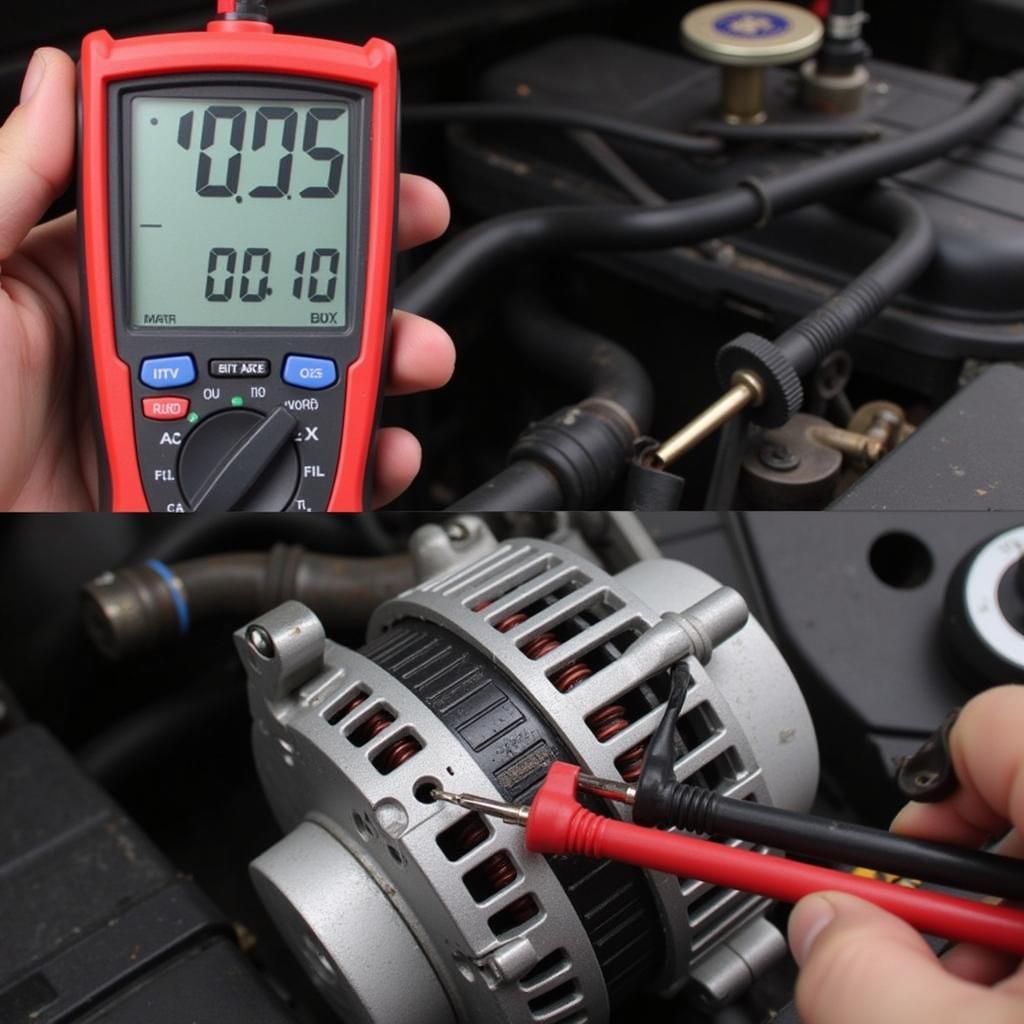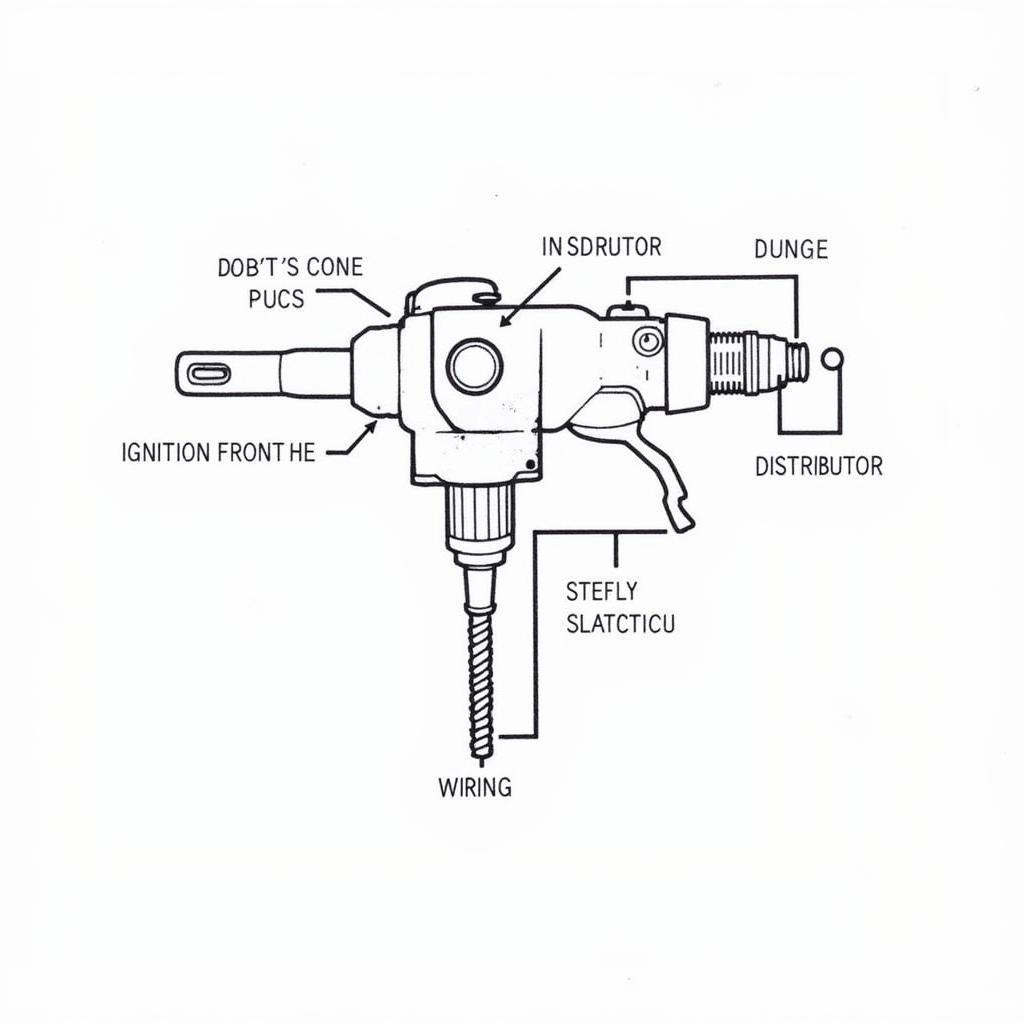A dead car battery is often the first suspect when your car won’t start. However, the “car won’t start problem” can stem from a variety of issues, ranging from a simple dead battery to more complex problems with the starter, alternator, or fuel system. This guide will walk you through the most common causes and provide practical solutions to get your car back on the road.
Common Reasons Why Your Car Won’t Start
There are several reasons why your car might refuse to start. Let’s explore some of the most frequent culprits:
Dead Battery
This is the most common cause of a car won’t start problem. A dead battery can be caused by leaving lights on, extreme temperatures, or simply old age. Try jump-starting your car. If it starts, the battery is likely the issue.
Faulty Starter
If you hear a clicking sound when you turn the key, but the engine doesn’t crank, the starter motor might be faulty. The starter is responsible for turning the engine over to initiate the combustion process. A bad starter needs to be replaced.
Alternator Issues
The alternator recharges the battery while the engine is running. A faulty alternator can lead to a drained battery and a car that won’t start. A simple test is to jump-start the car. If it dies again shortly after, the alternator might be the problem.
 Testing Car Alternator with a Multimeter
Testing Car Alternator with a Multimeter
Fuel System Problems
If the engine cranks but doesn’t start, the problem could be with the fuel system. This could be a clogged fuel filter, a malfunctioning fuel pump, or a bad fuel injector. Check for fuel pressure and ensure fuel is reaching the engine.
Ignition System Malfunction
The ignition system provides the spark that ignites the fuel. Issues with the ignition switch, ignition coil, spark plugs, or distributor can prevent the car from starting.
 Components of a Car Ignition System
Components of a Car Ignition System
Troubleshooting Your Car Won’t Start Problem
- Check the Battery: Try jump-starting the car. If it starts, have the battery tested and replaced if necessary.
- Listen for the Starter: A clicking sound indicates a starter problem.
- Inspect the Alternator: If the car dies after being jump-started, suspect the alternator.
- Examine the Fuel System: Check for fuel pressure and ensure fuel is reaching the engine.
- Investigate the Ignition System: Check the ignition switch, coil, spark plugs, and distributor.
Car Won’t Start: Expert Insights
“A weak battery can often mimic other problems, leading to unnecessary repairs. Always check the battery first,” advises John Miller, ASE Certified Master Technician.
“Modern cars have complex computer systems. If you’re unsure, it’s best to consult a qualified mechanic,” adds Sarah Thompson, Automotive Electrical Engineer.
Conclusion
The “car won’t start problem” can be frustrating, but by systematically checking the common causes outlined above, you can often pinpoint the issue and get your car running again. If you’re unable to diagnose the problem yourself, it’s always recommended to seek professional help. Contact us at AutoTipPro for expert assistance. Our phone number is +1 (641) 206-8880, and our office is located at 500 N St Mary’s St, San Antonio, TX 78205, United States.
FAQ
- What is the most common reason a car won’t start? A dead battery is typically the most common culprit.
- How can I test my car battery? Use a multimeter to check the voltage or try jump-starting the car.
- What does a clicking sound when I turn the key indicate? A clicking sound often points to a faulty starter motor.
- How can I tell if my alternator is bad? If the car dies shortly after being jump-started, the alternator may be the issue.
- What should I do if the engine cranks but doesn’t start? Check the fuel system and ignition system.
- Can extreme temperatures affect my car battery? Yes, both extreme heat and cold can shorten the lifespan of a battery.
- When should I seek professional help for a car that won’t start? If you’re unable to diagnose the problem yourself, it’s best to consult a qualified mechanic.




Leave a Reply